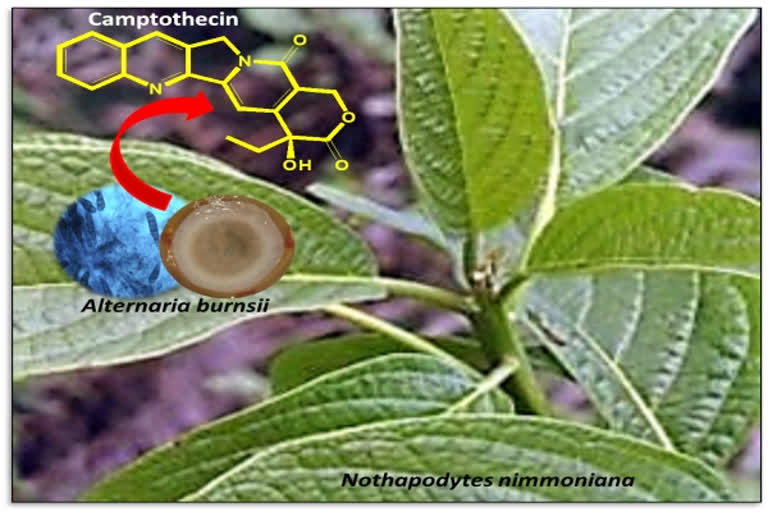Chennai: Indian Institute of Technology (IIT) Madras Researchers have identified a sustainable and high-yielding alternative source for the anti-cancer drug Camptothecin. This novel microbial fermentation process can be an economically-efficient method of production to fulfil the market demand at a large scale.
Topotecan and Irinotecan are two widely used anticancer drugs, which are produced by using Camptothecin as the lead molecule. More than a dozen derivatives and conjugates of Camptothecin are under various stages of clinical trials for anti-cancer applications.
Camptothecin is an alkaloid isolated from the Chinese tree Camptotheca acuminata and the Indian tree Nothapodytes nimmoniana. Nearly 1,000 tons of plant material is required to extract just one ton of Camptothecin. Due to extensive overharvesting to meet the market demand both these plants are now critically endangered. The N. nimmoniana population has seen more than a 20% decline in the last decade alone.
IIT Madras Researchers have now developed an alternative method of Camptothecin production to meet the demand and conserve natural sources. To this effect, they developed a microbial fermentation process that can be an economically efficient and sustainable method of production to fulfil the market demand at a large scale.
